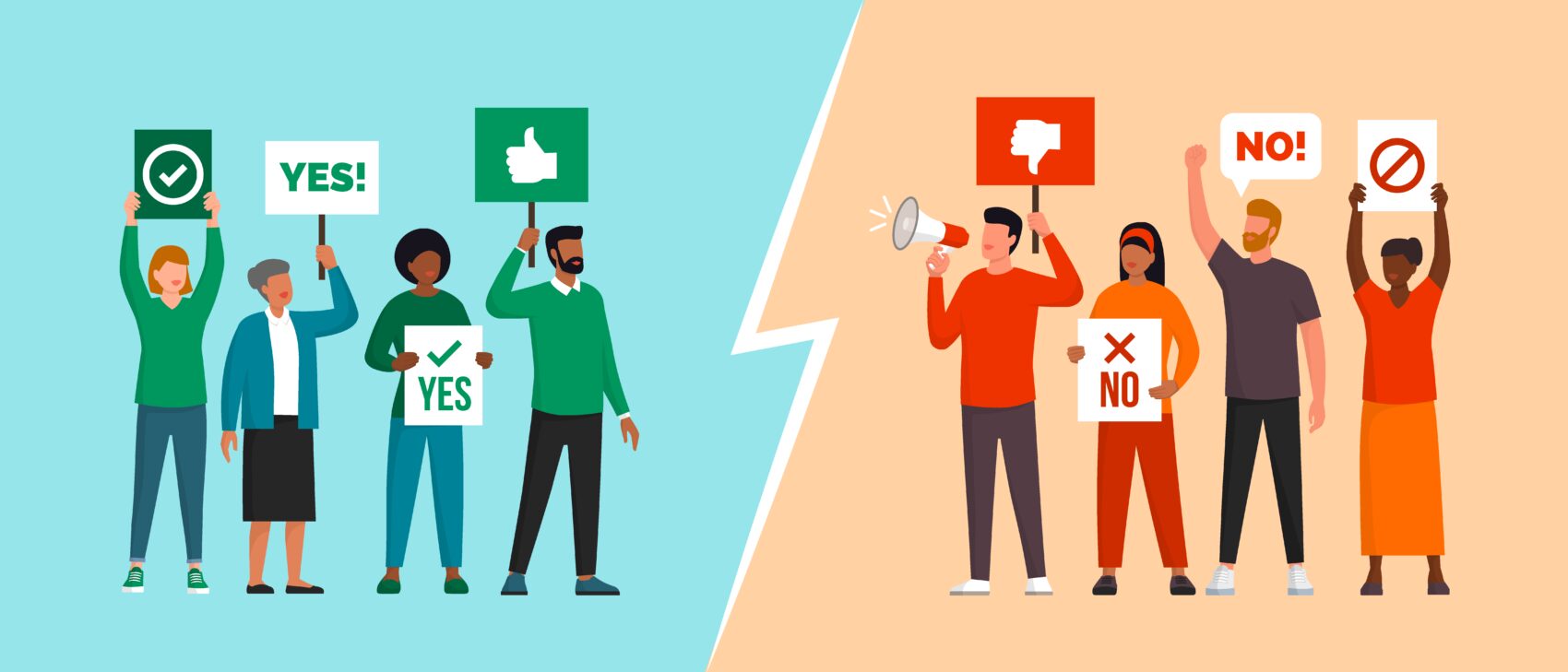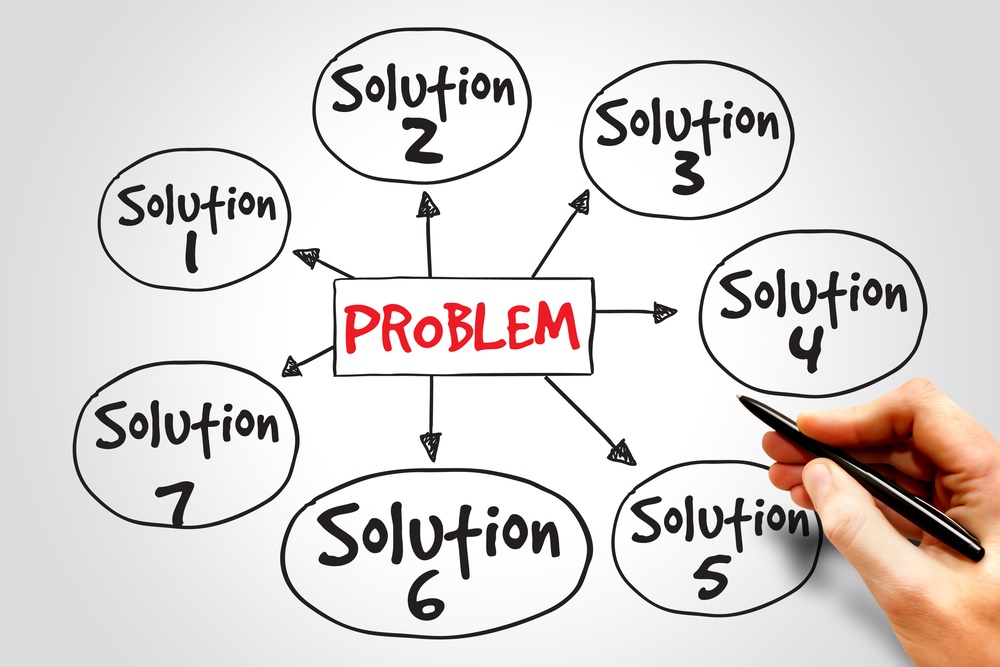The Challenges of Conversation Etiquette in the Workplace
Stacey J. Drubner, JD, LICSW, MPH

We all know how to interact with each other at work. Or do we? Whether discussions are about work or something else, interactions can be challenging or even lead to disagreement. Lately, it seems like stress is high and patience is low. There are several contributing factors, such as:
- Work or other life stresses
- Different personalities and work styles
- Varied world and political views with increasingly divided opinions
- Divergent ideas about acceptable conversations in the workplace
Navigating workplace etiquette can be difficult. In this month’s EAP feature we review some rules of engagement that can help achieve a more respectful, functioning workplace and therefore, greater job satisfaction for everyone.
Tips for General Workplace Conversation

Remember that conversations have two parts – speaking and listening
Many of us have a lot to say and perhaps believe we have useful experience, knowledge, or value to add. This may be true, but being considerate of others benefits you and can improve relationships.
- Be an engaged listener
- Be open-minded and willing to learn from others
- Be aware of your body language
– Things like facial expressions and stance can communicate your disagreement or disinterest as much as words
Be thoughtful about your reactions to people with perspectives that differ from yours
- Remember that healthy academic debate is a normal part of our experience in medicine
– Different perspectives are not only acceptable, but often the driving force behind learning, scientific discovery, and innovation - Be honest, but diplomatic
- Speak respectfully even if you strongly disagree with someone
- Take a step back to consider your response if you are at-risk of over-reacting
– It’s totally acceptable to share your point of view
– Instead of acting out of frustration, walk away or take a break
– Consider how you would feel on the other end of your response - You don’t always have to prove you are right (even if believe you are)
- Seek common ground when possible
If a Co-worker turns to you for support
- As a general rule, keep private conversations confidential
– We understand the importance of this with patient care but don’t always apply it to colleagues
– Your co-worker is coming to you because they trust you and likely expect your discretion. However, if you feel the confidential information you received shows that this employee’s or other employees’ safety is at risk, you have a responsibility to escalate concerns to either leadership or HR
– Gossiping is not productive or kind - Be empathetic
- Try not to complain about work issues with co-workers too frequently
– Venting once in a while can be validating or possibly lead to solutions, but when it happens regularly, it is likely to negatively impact work satisfaction - Be honest about your own capacity to help
– Consider your expertise, time, or emotional bandwidth - Recommend the EAP or other helpful resource
Be careful with written communications
Check emails or chats before you hit send. It might seem like an obvious concept, but many people find themselves in an awkward situation because they are rushed or are not mindful with technology
- Be professional and not too casual
- Are the correct people copied?
- Did you write anything you wouldn’t want forwarded?
- Be knowledgeable about the “message recall” feature in Outlook
- Keep in mind that tone can be misinterpreted with written communications; for example, using all capital letters may come across as shouting
- If you have an issue with someone, suggest a face-to-face meeting or phone conversation, rather than creating a trail of negative or potentially misperceived words

Tips for Conversation about non-work Topics
While conventional wisdom suggests that certain topics (politics, religion, personal issues) should be left at the office door, this is probably an unrealistic expectation and sometimes boundaries are vague. Given the realities of human social interaction, (people talk), combined with the amount of time many of us spend at work, it’s inevitable that conversations drift into some of these topic areas. There are things you can do to keep non-work discussions within reasonable boundaries.
Politics & Religion
Things have gotten stressful on the political front. People are committed to their positions and may adopt black and white thinking. Some may assume that their beliefs are universally held or that those who don’t agree with them are uninformed or unintelligent. Consider the following before you form a judgment or react:
- With a system of approximately 80,000 employees, it is 100 percent guaranteed that there are a large range of political points of view. Even within categories, people have varied perspectives on different issues
- If we are unwilling to challenge our own views or consider those of others, we may lose an opportunity to grow or alienate a colleague
- Silence is not acquiescence. Don’t assume that lack of engagement or debate signifies agreement or even comfort with the discussion
- If someone witnessing a conversation seems uncomfortable, they probably are. In this case, you should stop the discussion or continue talking in private
Personal Issues
- At some point, we all face personal challenges outside of work. How each of us handles these at work will vary by individual. Some will choose to discuss issues with co-workers, perhaps because colleagues seem receptive to this or are friends/in a common life stage. Others prefer to keep personal lives private. Either way, if problems start to feel overwhelming for you or those who care about you, the EAP is available to identify resources for support inside or outside of the workplace.

When you discuss “non-work” topics, consider the following:
- The frequency with which these discussions occur
- Whether or not it interferes with work relationships, productivity, or patient care
- The culture in your work group
- The relationship you have with specific individuals
– Is it mutually acceptable to discuss certain topics?
– Does the co-worker signal that this is OK with them?
– Does the co-worker show or express concern or disinterest, or seem burdened? - Are others not in the conversation (but privy to it) affected by what is discussed?
-Think about perception. If a bystander could be offended after overhearing your conversation, it is probably best to end the conversation or discuss another topic - These discussions should occur during breaks
- Does the conversation violate MGB ethical standards or the MGB Code of Conduct or create personal or system liability?

Options for Resolution
If you find yourself struggling with any type of workplace interaction, here are some ideas for resolution:
Take a step back to consider the circumstances surrounding the interaction
- Is this a one-time event or a pattern of behavior?
- Do you have a sense of the co-worker’s intention(s)?
- Is the appropriateness of the interaction open to interpretation?
- Is the behavior so egregious that speaking up seems like the best option?
- Are you a manager?
– If so, there are circumstances (such as workplace harassment) in which you are required to take action
Approach the co-worker(s) involved if you feel safe and comfortable doing so
- Speaking with someone directly may prevent a negative relationship or the situation from worsening
- If you choose this route, consider giving your colleague the benefit of the doubt, at least initially
– Maybe they are not aware that the interaction is problematic for you
If someone approaches you with concerns about an interaction
- Try not to be defensive
- Consider your colleague’s point of view
- Apologize if warranted
- If the other person seems receptive, it’s acceptable to discuss your intentions or position
Enlist an objective 3rd party
- Reach out to the EAP – for confidential assistance in weighing options for resolution
- Speak with a trusted colleague
- Contact your manager or HR
- Report concerns about harassment, discrimination, or other unacceptable behaviors via Know the Line, your manager, or HR. If you wish to report your concern anonymously, contact the Compliance Hotline at 1-800-856-1983 or online: Mass General Brigham Compliance Help Line & Reporting Site
Help from the EAP
The EAP offers free and confidential services for employees and immediate family, household members. EAP records are separate from medical and HR records. Contact the EAP at 866-724-4327 or request an appointment via our online form for confidential assistance. In-person appointments are available at the following locations. Phone or Video (Zoom) appointments are available from all locations.







